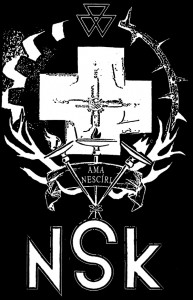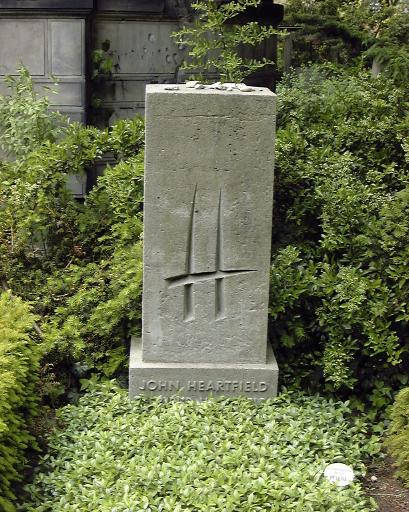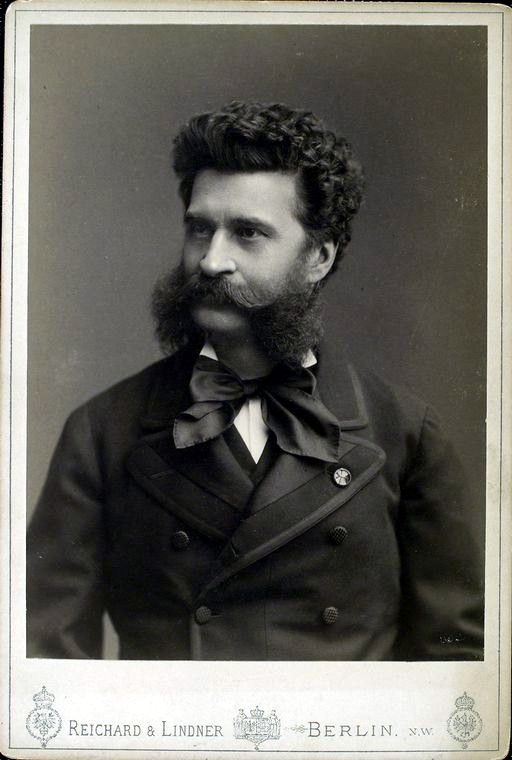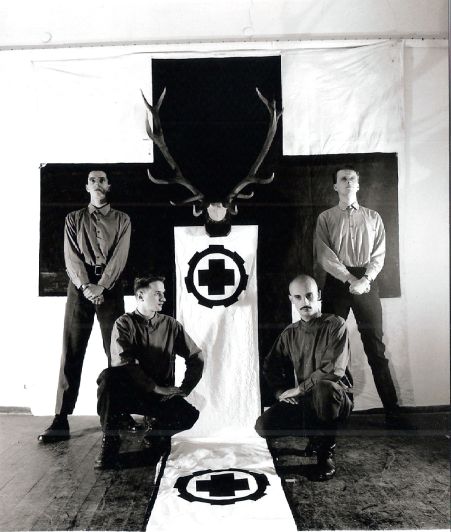|
Baptism (Laibach Album)
''Baptism'' (full title ''Krst pod Triglavom - Baptism Below Triglav'') is soundtrack album by Laibach. It is the soundtrack to the Neue Slowenische Kunst production of the same name. All music and lyrics by Laibach, except where noted. Track listing LP The 2LP version (released as a box with the two records, an LP-sized booklet and two posters) has the following tracks: 819-822: # "Hostnik"Named after original Laibach vocalist Tomaž Hostnik. Music by Kraftwerk ("Ohm Sweet Ohm"), lyrics by Tomaž Hostnik. # "Jezero" ''(Lake)'' # "Valjhun"The pieces "Valjhun" and "Bogomila" also derive from France Prešeren's epic. Valjhun is a Carinthian duke who converts Slavs into Christianity and Bogomila is Črtomir's sweetheart. # "Delak""Delak" is probably named after radical Slovenian theatrical artist Ferdo Delak. # "Koža"The pieces "Koža", "Jägerspiel", "Herzfeld" and "Krst" are also found as bonus tracks on the ''Opus Dei'' CD. ''(Skin)'' 1095-1270: # "Jägerspiel" ''(Hunters' ... [...More Info...] [...Related Items...] OR: [Wikipedia] [Google] [Baidu] |
Laibach (band)
Laibach () is a Slovenian and Socialist Federal Republic of Yugoslavia, Yugoslav avant-garde music group associated with the industrial music, industrial, Martial industrial, martial, and Dark wave#Neoclassical dark wave, neoclassical genres. Formed in 1980 in the Mining community, mining town of Trbovlje, Slovenia, at the time a constituent republic within Socialist Federal Republic of Yugoslavia, Laibach represents the musical wing of the Neue Slowenische Kunst (NSK) artist collective, a group which Laibach co-founded in 1984. From the early days, the band was subject to controversies and bans due to their use of iconography with parodies and pastiches of elements from totalitarianism, nationalism and militarism, a concept they have preserved throughout their career. Censored in Yugoslavia, receiving a dissident status and a cult following in their home country, the band embarked on international tours and gradually acquired international fame, which led to wider acceptance by ... [...More Info...] [...Related Items...] OR: [Wikipedia] [Google] [Baidu] |
Neue Slowenische Kunst
Neue Slowenische Kunst (; NSK; ) is a political art collective that formed in Slovenia in 1984, when the Socialist Republic of Slovenia was part of Socialist Federal Republic of Yugoslavia. NSK's name was chosen to reflect the theme in its works of the complicated relationship Slovenes have had with Germans. The name of NSK's music wing, Laibach, is also the German name of the Slovene capital Ljubljana. The name created controversy because some felt it evoked memories of the Nazi annexation of Slovenia during the Second World War. It also refers to Slovenia's previous seven centuries as part of the Habsburg monarchy. Composition NSK was founded by the musical group Laibach. Other NSK members include groups such as IRWIN (visual art), Scipion Nasice Sisters Theatre (also known as Red Pilot and Cosmokinetic Theatre Noordung), New Collective Studio (graphics; also known as New Collectivism), Retrovision (film and video), and the Department of Pure and Applied Philosophy (theor ... [...More Info...] [...Related Items...] OR: [Wikipedia] [Google] [Baidu] |
John Heartfield
John Heartfield (born Helmut Herzfeld; 19 June 1891 – 26 April 1968) was a German visual artist who pioneered the use of art as a political weapon. Some of his most famous photomontages were anti-Nazi and anti-fascist statements. Heartfield also created book jackets for book authors, such as Upton Sinclair, as well as stage sets for contemporary playwrights, such as Bertolt Brecht and Erwin Piscator. Biography Early life, education and work John Heartfield was born Helmut Herzfeld on 19 June 1891 in Berlin-Schmargendorf, Berlin under the German Empire. His parents were Franz Herzfeld, a socialist writer, and Alice (née Stolzenburg), a textile worker and political activist. In 1899, Helmut, his brother Wieland Herzfelde, Wieland, and their sisters Lotte and Hertha were abandoned in the woods by their parents after Franz Herzfeld was accused of blasphemy. His family had to flee to Switzerland and later they were deported to Austrian Empire, Austria. When their parents disappe ... [...More Info...] [...Related Items...] OR: [Wikipedia] [Google] [Baidu] |
France Prešeren
France Prešeren () (3 December 1800 – 8 February 1849) was a 19th-century Romantic Slovene poet whose poems have been translated into many languages.Database of translations – Prešeren , Slovene Book Agency, 2013 He has been considered the greatest Slovene classical poet and has inspired later . He wrote the first Slovene and the first Slovene |
Johann Strauss II
Johann Baptist Strauss II (; ; 25 October 1825 – 3 June 1899), also known as Johann Strauss Jr., the Younger or the Son (), was an List of Austrian composers, Austrian composer of light music, particularly dance music and operettas as well as a violinist. He composed over 500 waltzes, polkas, quadrilles, and other types of dance music, as well as several operettas and a ballet. In his lifetime, he was known as "The Waltz King", and was largely responsible for the popularity of the waltz in the 19th century. Some of Johann Strauss's most famous works include "The Blue Danube", "Kaiser-Walzer" (Emperor Waltz), "Tales from the Vienna Woods", "Frühlingsstimmen", and the "Tritsch-Tratsch-Polka". Among his operettas, ''Die Fledermaus'' and ''Der Zigeunerbaron'' are the best known. Strauss was the son of Johann Strauss I and his first wife Maria Anna Streim. Two younger brothers, Josef Strauss, Josef and Eduard Strauss, also became composers of light music, although they were neve ... [...More Info...] [...Related Items...] OR: [Wikipedia] [Google] [Baidu] |
Wiener Blut (waltz)
Wiener Blut ('Viennese Blood', 'Vienna Blood' or 'Viennese Spirit') Op. 354 is a waltz by Johann Strauss II first performed by the composer on 22 April 1873. The new dedication waltz was to celebrate the wedding of the Emperor Franz Joseph I of Austria, Franz Joseph I's daughter Archduchess Gisela of Austria, Archduchess Gisela Louise Maria and Prince Leopold of Bavaria. However, the waltz was also chiefly noted by Strauss' biographers as the début of Strauss with the Vienna Philharmonic Orchestra where for many years, the Philharmonic had dismissed any association with the 'Waltz King' as it had not wished to be associated with mere 'light' or 'pops' music. The festival ball celebrating the event was held at the Musikverein, Vienna, Musikverein Hall which is the venue for the present day Neujahrskonzert. 'Wiener Blut' is one of a handful of late works by Strauss that were not composed for the stage; at this point in his career he was concentrating on writing for the performi ... [...More Info...] [...Related Items...] OR: [Wikipedia] [Google] [Baidu] |
Opus Dei (album)
''Opus Dei'' is the third studio album by the Slovenian and Yugoslav avant-garde music group Laibach, released on March 23, 1987 by Mute Records. It features "Geburt einer Nation" ("birth of a nation"), a German language cover version of Queen's "One Vision", and two reworkings of " Live Is Life" by the Austrian pop rock band Opus'. The Opus song became the German language "Leben heißt Leben" and the English language "Opus Dei". "The Great Seal" is the national anthem of the NSK State, the lyrics taken from Winston Churchill's 1940 "We shall fight on the beaches" speech. A new arrangement of the song appears on Laibach's seventh studio album ''Volk'' (2006), with the title "NSK". On ''Volk'', the song is credited to Laibach and Slavko Avsenik Jr. There are two further connections with Queen's ''A Kind of Magic'' studio album. Although the drum loop in "Trans-National" is nearly identical to that in Queen's "Don't Lose Your Head", it is composed in fact from samples from the i ... [...More Info...] [...Related Items...] OR: [Wikipedia] [Google] [Baidu] |
Ferdo Delak
Ferdo Delak (June 29, 1905 – January 16, 1968) was a Slovene theater and film director and journalist. Delak was born in Gorizia on June 29, 1905.Moravec, Dušan. 1988. Delak, Ferdo. ''Enciklopedija Slovenije'', vol. 2, p. 188. Ljubljana: Mladinska knjiga. He studied at the University of Ljubljana's Faculty of Arts, and then later in Vienna, Berlin, Prague, and Paris. He graduated from the Mozarteum University of Salzburg in 1935. Delak was one of the first Slovenian avant-garde figures and theater revolutionaries. He founded the New Stage () movement in Ljubljana and the international avant-garde journal ''Tank''. He was involved in almost all Slovene and Yugoslav theaters and also served twice as the director of the Croatian National Theater. He was also involved in work at other Croatian theaters. He was also engaged for a short time at the Ljubljana National Drama Theater and the Slovenian National Opera and Ballet Theater. In 1932, Delak directed the second Slovene full ... [...More Info...] [...Related Items...] OR: [Wikipedia] [Google] [Baidu] |
Kraftwerk
Kraftwerk (, ) is a Germany, German Electronic music, electronic band formed in Düsseldorf in 1970 by Ralf Hütter and Florian Schneider. Widely considered innovators and pioneers of electronic music, Kraftwerk was among the first successful acts to popularize the genre. The group began as part of West Germany's experimental krautrock scene in the early 1970s before fully embracing electronic instrumentation, including synthesizers, drum machines, and vocoders. Wolfgang Flür joined the band in 1973 and Karl Bartos in 1975, expanding the band to a quartet. On commercially successful albums such as ''Autobahn (album), Autobahn'' (1974), ''Trans-Europe Express (album), Trans-Europe Express'' (1977), ''The Man-Machine'' (1978), and ''Computer World'' (1981), Kraftwerk developed a self-described "robot pop" style that combined electronic music with pop melodies, sparse arrangements, and repetitive rhythms, while adopting a stylized image including matching suits. Following the rele ... [...More Info...] [...Related Items...] OR: [Wikipedia] [Google] [Baidu] |
Tomaž Hostnik
Tomaž is the Slovene form of the male given name Thomas. People Bearers of these names include: *Tomaž Barada, Slovenian martial artist * Tomaž Čižman (born 1965), Slovenian alpine skier *Tomaž Humar (born 1969), Slovenian mountaineer * Tomaž Jemc (born 1964), Slovenian alpine skier *Anton Tomaž Linhart (1756–1795), Slovene playwright and historian *Tomaž Marušič (born 1932), Slovenian lawyer and politician *Tomaž Ocvirk, Slovenian handball coach *Tomaž Pengov, Slovenian guitar player *Tomaž Pirih (born 1981), Slovenian rower *Tomaž Pisanski (born 1949), Slovenian mathematician *Tomaž Razingar, Slovenian ice hockey player *Tomaž Šalamun (born 1941), Slovenian poet See also *Sveti Tomaž (other) Sveti Tomaž may refer to several places in Slovenia: * Brecljevo, a settlement in the Municipality of Šmarje pri Jelšah, known as ''Sveti Tomaž pri Šmarju'' until 1955 *Municipality of Sveti Tomaž, a municipality in northeastern Slovenia *� ... (Saint T ... [...More Info...] [...Related Items...] OR: [Wikipedia] [Google] [Baidu] |
Laibach
Laibach () is a Slovenian and Yugoslav avant-garde music group associated with the industrial, martial, and neoclassical genres. Formed in 1980 in the mining town of Trbovlje, Slovenia, at the time a constituent republic within Socialist Federal Republic of Yugoslavia, Laibach represents the musical wing of the Neue Slowenische Kunst (NSK) artist collective, a group which Laibach co-founded in 1984. From the early days, the band was subject to controversies and bans due to their use of iconography with parodies and pastiches of elements from totalitarianism, nationalism and militarism, a concept they have preserved throughout their career. Censored in Yugoslavia, receiving a dissident status and a cult following in their home country, the band embarked on international tours and gradually acquired international fame, which led to wider acceptance by Yugoslav public and to attention of the country's mainstream media. After Slovenia became independent in 1991, Laibach's status ... [...More Info...] [...Related Items...] OR: [Wikipedia] [Google] [Baidu] |






